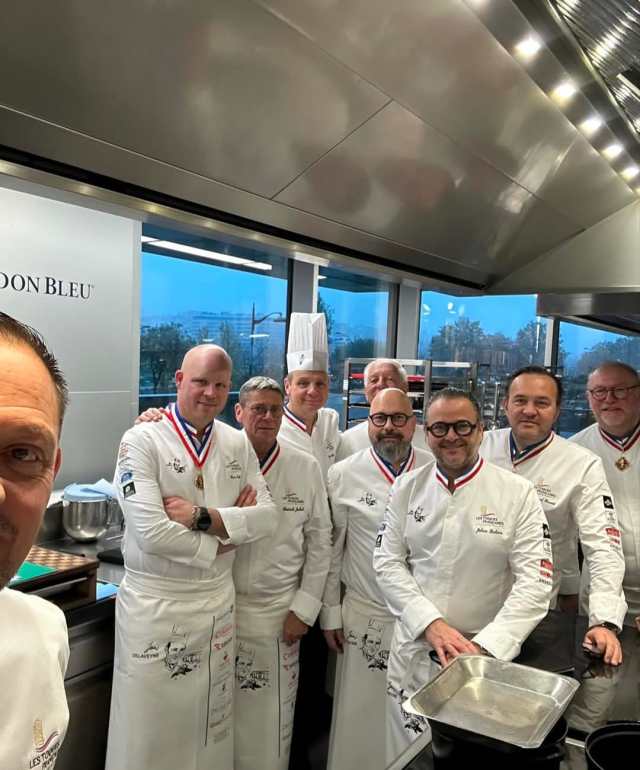
François Adamski: From Cucq’s Coastal Charm to the Global Stage of French Gastronomy
Roots in Northern France
François Adamski’s culinary journey begins far from the glittering Michelin galas and international stages where his name is now celebrated. Born on March 25, 1971, in Cucq, a modest town in Pas-de-Calais, Northern France, his childhood was steeped in the rhythms of coastal life. The mornings often carried the scent of the sea, mingled with the warm, buttery aroma of fresh bread from the local boulangerie. Here, food wasn’t about luxury; it was about comfort, seasonality, and togetherness.
Cucq’s markets overflowed with earthy root vegetables, briny oysters from nearby bays, and golden rounds of cheese. For the young François, these ingredients weren’t simply commodities—they were treasures. While many boys his age spent weekends playing football, he was drawn to the kitchen, watching with fascination as his family transformed humble produce into meals that gathered everyone around the table.
Though he didn’t yet know it, those formative years were laying the foundation for a career defined by respect for terroir, an unwavering commitment to quality, and a belief that food could tell the story of a place.

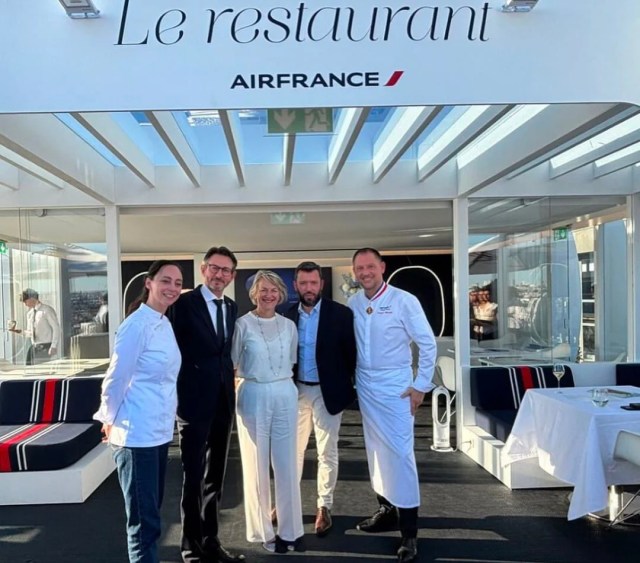
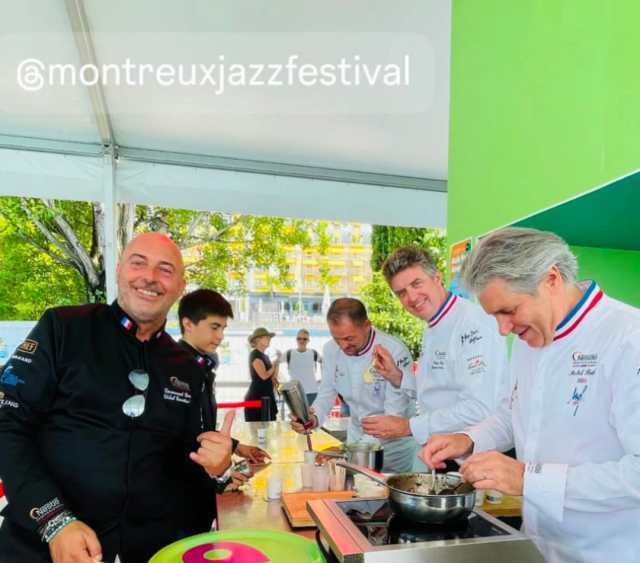
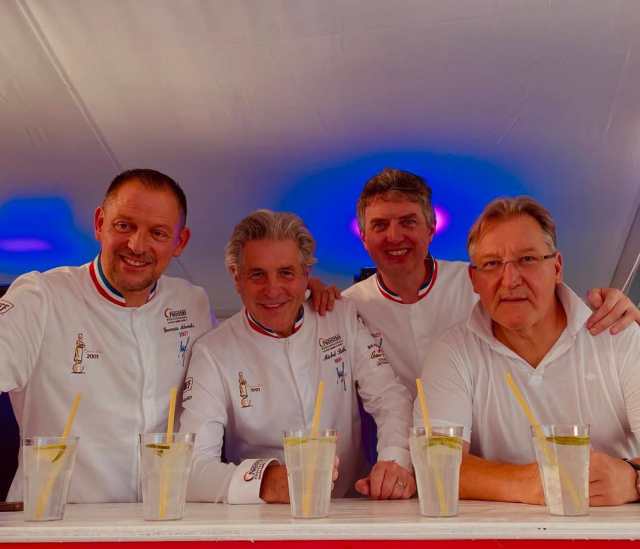














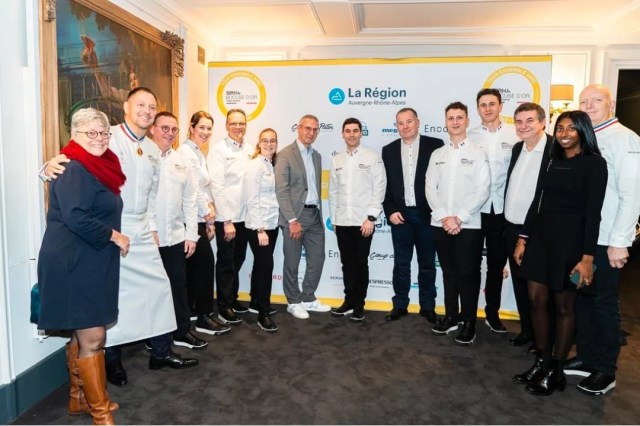

The Discipline of the École Hôtelière du Touquet
Choosing to pursue the culinary arts professionally, François enrolled at the École hôtelière du Touquet, one of the region’s premier training grounds for aspiring chefs. The curriculum was demanding and unyielding—designed to break bad habits, sharpen skills, and instill the exacting standards required for haute cuisine.
During his years there, François earned his CAP, BEP, and BTS qualifications, each representing a different stage in his mastery. The training was rigorous: endless repetitions of knife cuts until muscle memory took over, precise sauce emulsifications where a single degree could mean success or failure, and service simulations where every second counted.
It was here that François developed the qualities that would define his career: an obsession with detail, a calm composure under pressure, and a refusal to settle for “good enough.” These traits, honed in the kitchens of Touquet, would later carry him through the most intense competitions and prestigious dining rooms in the world.
Cooking at the Heart of Power: Hôtel de Matignon
Upon completing his formal studies, François entered a world few young chefs ever experience: the Hôtel de Matignon, the official residence of the French Prime Minister. This was no ordinary kitchen—every plate had the potential to influence political moods, every service was a matter of state.
During his military service here, François learned lessons that went far beyond culinary technique. He discovered the importance of timing, discretion, and adaptability. Menus often had to be adjusted at the last moment to suit the tastes—or the schedules—of high-profile guests. The kitchen was a place of quiet precision, where even the clink of cutlery could feel amplified.
This period reinforced a belief that would stay with him for life: great cuisine isn’t only about flavors—it’s about creating moments, sometimes in the most high-stakes circumstances.
The Parisian Baptism: Icons of French Cuisine
Leaving Matignon, François sought to deepen his craft in the beating heart of French gastronomy: Paris. His early professional journey reads like a pilgrimage through the city’s culinary temples—Plaza Athénée, Ritz Paris, Maison Prunier, and the Intercontinental.
At Plaza Athénée, he learned that fine dining could be a kind of theatre, where every plate was a performance and every service a premiere. At the Ritz, he refined the art of timing—serving with military precision while maintaining the warmth and grace that define true hospitality. Maison Prunier, a historic seafood institution, taught him the intricacies of working with marine produce, where freshness was measured not in days but in hours. And at the Intercontinental, he stepped into early leadership roles, learning to inspire and direct a brigade without losing sight of the kitchen’s heartbeat.
These experiences didn’t just shape his technique—they expanded his understanding of what French cuisine could be: luxurious yet grounded, innovative yet rooted in centuries of tradition.
The Bocuse d’Or: Triumph in Lyon
In 2001, François Adamski’s career reached a defining moment when he competed in—and won—the Bocuse d’Or, the most prestigious culinary competition in the world. Created by the legendary Paul Bocuse, this biennial event in Lyon draws the globe’s finest chefs to compete in a high-pressure, stadium-like arena.
For five and a half hours, François worked with laser focus, crafting dishes that balanced impeccable technique with an artistic flair. His presentation was a study in elegance, his flavors a harmonious blend of classicism and modernity. When his name was announced as the winner, it wasn’t just a personal victory—it was a statement that he had joined the ranks of the culinary elite.
The Bocuse d’Or medal would forever be linked to his name, marking him as a chef capable of excelling at the very highest level under the most intense scrutiny.
The Meilleur Ouvrier de France: Wearing the Tricolor
As if the Bocuse d’Or weren’t enough, François went on to achieve another of France’s most coveted honors: the title of Meilleur Ouvrier de France (MOF) in 2007.
Unlike typical culinary contests, the MOF is less about competition and more about mastery. It is an exhaustive evaluation of skill, artistry, and innovation, culminating in a lifelong right to wear the iconic tricolor collar on one’s chef’s jacket. For François, earning the MOF was both a professional pinnacle and a personal affirmation—a recognition that his craft met the highest standards of French gastronomy.
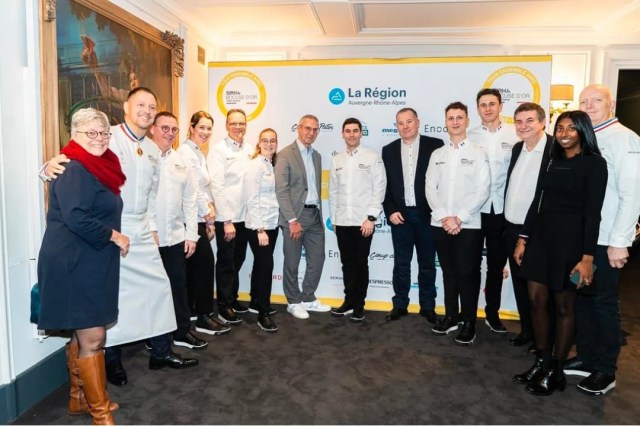
Guarding the Star: Abbaye Saint-Ambroix
For several years, François served as chef at the Abbaye Saint-Ambroix in Bourges, a restaurant steeped in history and elegance. Maintaining its Michelin star was no easy feat—it required not only consistency but also the ability to evolve with the times without losing the soul of the cuisine. François succeeded by combining respect for tradition with a willingness to innovate, ensuring that every dish resonated with both past and present.
Le Gabriel, Bordeaux: A New Chapter
In 2009, François took over the kitchens at Le Gabriel in Bordeaux. His move was so inspiring that much of his Bourges team chose to follow him—proof of the loyalty and respect he commanded.
Within a year, Le Gabriel was awarded its first Michelin star, and by 2011, its bistrot earned the Bib Gourmand distinction for exceptional value and quality. Here, François showcased his ability to marry the richness of Bordeaux’s terroir—foie gras from the Landes, oysters from Arcachon, wines from the surrounding vineyards—with the precision and elegance that had become his signature.

François Adamski: From Coastal Roots to Culinary Eminence
Born on March 25, 1971, in Cucq, Pas-de-Calais, François Adamski grew up surrounded by the honest flavors of Northern France. His early fascination with cooking led him to the École hôtelière du Touquet, where he earned his CAP, BEP, and BTS, mastering the fundamentals of French cuisine with discipline and precision.
After graduating, he fulfilled his military service as chef at the Hôtel de Matignon, cooking for the French Prime Minister—a formative experience that sharpened his skills in discretion and timing. He then immersed himself in Paris’ culinary elite, working at Plaza Athénée, Ritz Paris, Maison Prunier, and the Intercontinental, each refining his technique and deepening his understanding of haute cuisine.
In 2001, François achieved global recognition by winning the Bocuse d’Or, the world’s most prestigious culinary competition. Six years later, he was named Meilleur Ouvrier de France, earning the right to wear the tricolor collar as a master craftsman.
As chef at Abbaye Saint-Ambroix in Bourges, he maintained its Michelin star before moving in 2009 to Le Gabriel in Bordeaux, where his leadership secured a Michelin star in 2010 and a Bib Gourmand for its bistrot in 2011.
In 2019, François became Corporate Chef and Secretary General of Servair Studio Culinaire, part of Gategroup, where he oversees culinary innovation and collaborates with Air France to bring Michelin-level dining to the skies. He also served as President of Team France Bocuse d’Or (2012–2020) and is Vice-President of the Toques Françaises.
From the markets of Cucq to the international stage, François Adamski’s journey is a testament to precision, passion, and the enduring power of French gastronomy—both on land and at 30,000 feet.



